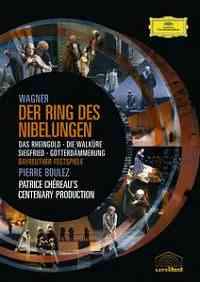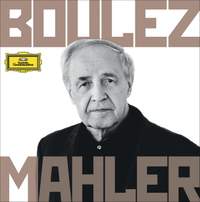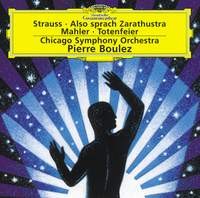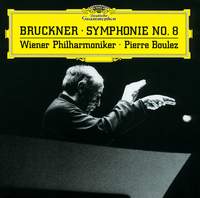Obituary,
Pierre Boulez (1925-2016)
 Word reached us this morning of the death yesterday of French composer and conductor, Pierre Boulez, at the grand old age of ninety. As one might expect, the tributes have already been flooding in from a multitude of people, and so I’m not sure what more I can add to the columns of praise and remembrance already out there, except perhaps to echo the sentiment that he was surely one of the most important musical figures of the twentieth century, a phrase that is both a cliché and yet also a massive understatement in Boulez’s case.
Word reached us this morning of the death yesterday of French composer and conductor, Pierre Boulez, at the grand old age of ninety. As one might expect, the tributes have already been flooding in from a multitude of people, and so I’m not sure what more I can add to the columns of praise and remembrance already out there, except perhaps to echo the sentiment that he was surely one of the most important musical figures of the twentieth century, a phrase that is both a cliché and yet also a massive understatement in Boulez’s case.
I first came across his music whilst an impressionable undergraduate, when I purchased a disc of piano music performed by Maurizio Pollini, containing music by Stravinsky, Prokofiev, and Webern, as well as Boulez’s Second Piano Sonata. I was simply astounded by what I was hearing (not least in part because of the almost superhuman performance by Pollini of such a phenomenally difficult work). I certainly won’t pretend to have understood the piece even slightly (I’m still not sure I do!), but it was such a fascinating compositional voice that I was immediately intrigued.
A couple of years ago, Deutsche Grammophon released a 13-CD set billed as his “Complete Works” (although it was somewhat more modestly and perhaps contradictorily referred to by Boulez himself as merely a “Work in Progress”), and it was a great pleasure to get to know so many more outstanding works, especially Figures, Doubles, Prismes for large orchestra, Répons for soloists and chamber ensemble, and possibly my favourite piece of Boulez – Messagesquisse, sur le nom de Paul Sacher for cello solo and six cellos.
I think it’s fair to say that as the years went on he became increasingly known for his conducting, not least of Ensemble InterContemporain, the chamber ensemble which he founded in 1976, but also his relationship with orchestras such as the New York Philharmonic, BBC Symphony Orchestra, Vienna Philharmonic, and London Symphony Orchestra.
His enormous discography focussed largely on twentieth-century composers, with many fine recordings of music by Debussy, Schoenberg, Berg, Webern, Stravinsky, Bartók, (the list could go on and on…), but there are also some fascinatingly unexpected recordings: perhaps the most incongruous is a disc with the New York Philharmonic of Handel’s Water Music and Music for the Royal Fireworks. I’m not going to assert that it’s the most historically-informed performance I’ve ever heard of this music, but it is great fun and I’m very fond of it all the same (sadly, it currently seems to be only available as part of a 67-disc box of Boulez’s complete recordings for Sony/Columbia).
Similarly, I will always enjoy his recordings of Bruckner’s Eighth Symphony and Richard Strauss’s Also sprach Zarathustra, again not repertoire one might have associated with him, but all conducted with his customary clarity, intelligence, and attention to detail. He also conducted one of my favourite recordings of Wagner’s Ring Cycle: director Patrice Chéreau's Marxist-tinged, Industrial Revolution-set production was by no means greeted with universal enthusiasm when it made its debut at the 1976 Bayreuth Festival, nor indeed was Boulez’s conducting, with complaints from the orchestra regarding some of his speeds and other musical requests, but by the time the production was committed to video in 1980, it was hailed as a triumph, and set the standard for years to come.
One final anecdote: about ten years ago I attended an LSO concert at the Barbican, at which Boulez was conducting his orchestrations of four of his Douze Notations, with each of the orchestral versions prefaced by a performance of the piano original by the orchestra’s pianist, John Alley. Boulez explained to the audience that with this immediate juxtaposition we would therefore be able to see the relationship between the two versions. As he went on to say, with a cheeky smile, “At least, I hope you will. I have faith…”. I’m sure I wasn’t the only one there who didn’t quite manage to grasp such relationships on first hearing, but nevertheless his comment shows a flash of wit that one might not have expected if one were to believe the stereotype of Boulez as an austere, emotionless figure (a criticism sometimes levelled at his Mahler recordings in particular, and one with which I cannot agree). Both as composer and conductor, he will be much missed.
You can view Boulez's complete available discography as a conductor here and as a composer here.
A selection from Pierre Boulez's extensive discography
Donald McIntyre (Wotan/Der Wanderer), Gwyneth Jones (Brünnhilde), Manfred Jung (Siegfried), Peter Hofmann (Siegmund), Jeannine Altmeyer (Sieglinde), Hermann Becht (Alberich), Hanna Schwarz (Fricka). Also available as an audio download.
Available Format: 8 DVD Videos
Chicago Symphony Orchestra, Wiener Philharmoniker, Cleveland Orchestra, Staatskapelle Berlin
Available Formats: MP3, FLAC
Chicago Symphony Orchestra, Pierre Boulez
Available Formats: Presto CD, MP3, FLAC
Wiener Philharmoniker, Pierre Boulez
Available Formats: MP3, FLAC






